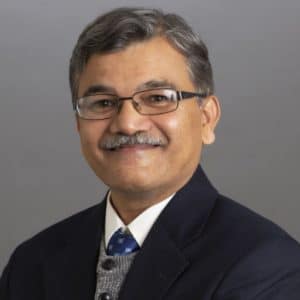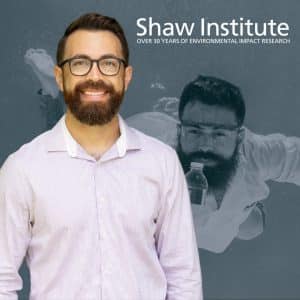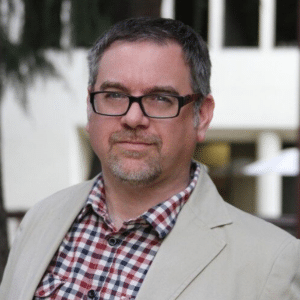Speaker Series
20 Years of Thought Leadership and Community Engagement
Our Environmental Speaker Series continues to feature engaging experts who discuss innovative approaches to challenging environmental issues, such as PFAS contamination, plastics recycling, and marine mammal conservation. Learn about the creative ways we are working to help identify solutions to some of our world’s most difficult challenges. All events are free open to the public.
2023 Series
Rosemary Seton | Allied Whale
Marine Mammal Strandings: What To Do And Not Do
Rosemary Seton is a wonderful storyteller who shared her experiences from over 25 years of involvement with marine mammal strandings in Maine, including how technology is aiding Allied Whale in rescues.
Louise Roy | Maine DEP
The ABCs of PFAS: Impact and Progress in Maine
Ms. Roy, an environmental hydrogeologist with Maine DEP, will discuss contaminants like PFAS in soil and groundwater, how they get into the environment, and results from the seminal work being done across Maine.
James Brown | ASU Biodesign Institute
Ban, Recycle or Replace: What Is Most Sustainable?
Dr. James Brown will discuss how his pivotal research on material design, molecular recycling, and replacements for dangerous “forever chemicals” (PFAS) can lead us to a more sustainable and circular approach to manufacturing and recycling.Charlie Rolsky | Shaw Institute
New Research and Powerful Collaboration: Solutions to Environmental Challenges
We launched our 2023 Speaker Series with an update from Executive Director, Dr. Charlie Rolsky, who showcased our new research, important collaborations with NYU and Harvard, and long-term direction for advancing the legacy of founder, Dr. Susan Shaw.
Events
2022 Series
 Susan Shaw was a force of nature. Her oceanic adventures are the stuff of which legends are made. From diving into an oil spill in Mexico to sounding the alarm of the plight of child waste pickers in India, there was no boundary this eco-warrior wouldn’t break in her quest to make life better for future generations.
Susan Shaw was a force of nature. Her oceanic adventures are the stuff of which legends are made. From diving into an oil spill in Mexico to sounding the alarm of the plight of child waste pickers in India, there was no boundary this eco-warrior wouldn’t break in her quest to make life better for future generations.
For two decades, Kurunthachalam Kannan, Ph.D., a world-renowned scientist himself, was Susan’s enthusiastic accomplice. In his talk, Kannan will share stories about their exploits and accomplishments, including identifying the health risks that flame-fighting chemicals presented to firefighters, riling up the aquaculture industry when they exposed threats to farmed and wild salmon, and having various toxic chemicals banned in the state of Maine. Dr. Kannan will also talk about his current research into understanding the presence of persistent organic pollutants in the environment and the emerging science of exposomics – understanding how internal and external elements like food, drugs, air, water and chemicals affect the health of humans.
In Blue Hill, we work hard to preserve the health and beauty of our fragile coastal ecosystem — and we’re proud of what we have accomplished TOGETHER. Our work hasn’t gone unnoticed. That’s why a representative from Plastic Oceans International will visit Blue Hill on July 20 to recognize our work — presenting us with the designation, “BlueCommunity.” This is an impressive honor in that only 35 communities across the globe have earned the BlueCommunities distinction. From Bali to Durban, the Seychelles and the Canary Islands, Blue Hill will be recognized as one of the planet’s most accomplished and inspired places; a place where people work together to solve sustainability and plastic pollution challenges — “providing inspiration for change on a global level.”
 The Shaw Institute’s Blue Hill Research Center reopened with the launch of its 2022 Environmental Speaker Series. With deep appreciation to Dr. Susan Shaw, we continue her legacy with Charles “Charlie” Rolsky, PhD, the Institute’s new senior research scientist. Dr. Rolsky’s talk highlighted the critically important work of the Institute, the plans to build upon Dr. Shaw’s legacy, and the introduction of new ideas, partners and initiatives for community-based research in 2022 and beyond.
The Shaw Institute’s Blue Hill Research Center reopened with the launch of its 2022 Environmental Speaker Series. With deep appreciation to Dr. Susan Shaw, we continue her legacy with Charles “Charlie” Rolsky, PhD, the Institute’s new senior research scientist. Dr. Rolsky’s talk highlighted the critically important work of the Institute, the plans to build upon Dr. Shaw’s legacy, and the introduction of new ideas, partners and initiatives for community-based research in 2022 and beyond.

